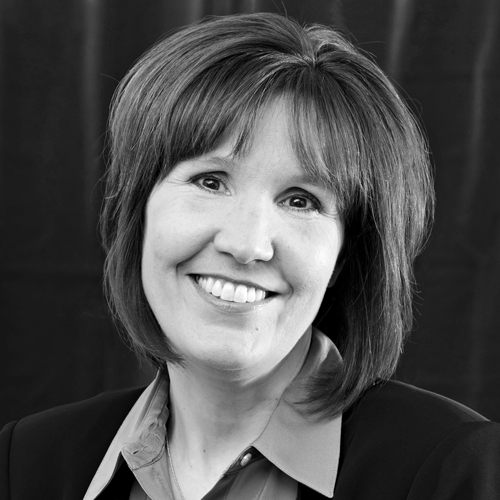For anyone keeping tabs on the industry, April 2014 might have seemed like a tumultuous time to accept a leadership role in retail, which was reeling at the time (and indeed still is). But for Stage Stores’ executive vice president and chief human resources officer Steve Parsons, who has assumed multiple risks in his career, it made all the sense in the world. “You have to take those risks, because that’s where the rewards and experiences come in,” Parsons explains. “The outcomes can be really incredible.”

Tracking Parsons’s career in human resources, in which he has set up camp in widely disparate industries, can be a whirlwind itself. He began in 1990 as HR manager with hospital manufacturing company Hill-Rom, spent seven years as HR director with Whirlpool Corporation, moved on to the same position with Sears, Roebuck and Co., then took on a role as senior vice president of human resources at Brooks Eckerd Pharmacy. Rite Aid later acquired the pharmacy chain, and Parsons stayed with the parent company for four years before OfficeMax recruited him to head its global HR operations. Eventually, he was asked to co-lead the company’s integration with Office Depot. Then in April 2014, he joined Stage Stores, which runs about 850 stores offering moderately priced, nationally recognized, brand-name and private-label apparel, accessories, cosmetics, and footwear.
Even beyond the overall gloom hanging over the retail industry, Stage Stores is being hit particularly hard because about a quarter of its stores are in the oil belt, which is going through tough economic times. In what Parsons refers to as a “headwind,” it may sound like a time to hunker down, but he sees it differently. “You can either retrench and play defense, or you can stay the course on your strategy,” Parsons says. “We’re staying the course because we believe all these things are cyclical.”
Since joining Stage Stores, Parsons’s function has indeed been a center of forward-thinking activity. One of the first initiatives he and his team took on was to create a vehicle to address associate input around their new long-term business and customer strategy. Associates were in need of a deeper understanding of the long-range strategy as well as its implication for them and Stage Stores customers. Parsons’s team began a flagship program that addressed both concerns simultaneously, and they contracted with a company that builds ninety-minute interactive, strategic-learning maps.
These highly developmental learning maps walk associates through a powerful visual and metaphorical rendering of the company’s long-term strategy, core values, and competition. This exercise enabled them to better connect and internalize the company’s long-term strategies, as well as help associates determine how their jobs are impacted by the strategy. As a result, this one exercise enabled thousands of associates everywhere to internalize the corporate strategy and align their work to it, Parsons says. A process that often takes years to do was accelerated in a matter of months, and it has truly resulted in an innovative practice, according to Parsons. Support and distribution center associates have gone through the maps, while store managers and retail associates began their sessions in May.
Parsons and his team also realized that there was a unique opportunity to differentiate and improve the company’s customer service experience. To this end, they implemented a customer-experience simulation for store associates addressing improved customer service. It simulates a day in the store, showing them how to better manage their day and make sound decisions. This innovative and experiential simulation is now part of the onboarding process for new associates, and it is considered to be a state-of-the-art practice that has redefined how to train store associates to provide best-in-class customer service.
Next, a comprehensive leadership model was developed. The powerful model explicitly details the leadership competencies, characteristics, and results the company is looking for from its leaders as they attract, develop, grow, and promote associates. “The most important leadership competency for us is ‘values-based leadership.’ This competency defines the enduring values a person must possess, things like confidence, exhibiting leadership and courage, being respectful, being fair and honest in all business dealings, leading and practicing our core values every day, and being able to constantly build trust with teams and individuals,” Parsons explains. “Without values-based leadership, all other leadership competencies are irrelevant. . . . It is the price of entry into the leadership world as far as I am concerned.”
“Without values-based leadership, all other leadership competencies are irrelevant.”
In addition, Parsons’s team developed and deployed an all-associate engagement survey called Voices, which specifically asks associates how they felt about the company, their overall experience, and their perspective on many other issues ranging from environment and growth to development, performance management, and leadership. Many companies launch engagement surveys and communicate the results to their people, but rarely is there a smart, simple, powerful, and dedicated action planning process that enables the results to be surrounded by action, Parsons says.
His team also introduced an innovative, engagement action-planning process called Echo meetings. It is a bottom-up total associate engagement approach and process where associates can air their concerns with business leadership, as well as define actions that can improve overall engagement. “These are not communications meetings that are simply showing results of the survey. These sessions are what I would call meaningful conversations with our associates,” Parsons says. “Conversations are at the minimum a two-way. It’s much more personable; it enables people to express how they really feel. This kind of total involvement in the solution truly is the way to higher levels of associate engagement.”
Key outcomes of these sessions have been the need to develop more dedicated investment in the growth and development of associates, and action plans have been developed to directly address this feedback, according to Parsons.
On the talent-management front, human resources has also begun defining and solidifying its talent-management practices. This enables a uniform and consistent total-company approach to assessing, growing, and preparing talent for new roles. An example is the clear and accurate definition of what potential, and being promotable, means in the organization, as well as ensuring the right succession planning is in place at Stage Stores. Parsons adds that this includes processes for proactively growing and preparing associates for a position opening, and informing them ahead of time.
Such transparency about this process pays dividends in terms of trust and loyalty, and developing the talent pipeline for the future, according to Parsons. “It’s disingenuous when you don’t tell people where they stand; they deserve to know that,” he says. “It goes back to our core value of integrity, that you should be fair and honest with people. My experience has been that most people are very appreciative, because they know how they’re tracking. If leaders have the potential to move up, they need to know, but also have access to the experiences and programs they require to get there. If they do not, they need to know that as well.”
So even in a headwind, Parsons is determined that the company continues to boldly invest in its people and its locations as dividends are already being realized throughout Stage Stores. “If you wait and don’t continue to invest in your people and store base—doing remodels and investing in trying to get the right talent in place—when things come around, you could be two or three years behind,” Parsons says. “We don’t want that. Our teams’ driving compass is that our current work and future strategies should never be constrained by a lack of growing. We’re contributing engaged and high-performing talent—customer and business focused—and always doing the right thing.”

